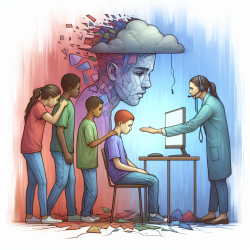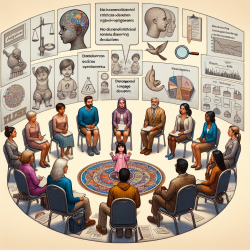Introduction
Recent research has increasingly highlighted the severe and long-lasting impacts of bullying victimization on children. The study titled Bullying Victimization and Trauma by Idsoe et al. (2021) delves into the complex relationship between bullying and trauma, proposing that bullying should be considered a form of interpersonal trauma. This blog aims to provide practitioners with insights from this research to improve their skills and encourage further investigation into the topic.
Bullying as Interpersonal Trauma
Traditionally, bullying and trauma research have operated in separate domains. However, the study by Idsoe et al. (2021) bridges this gap by demonstrating that bullying victimization often results in symptoms that align with those of PTSD and other complex trauma disorders. The authors argue that bullying should be viewed within the frameworks of Developmental Trauma Disorder (DTD) and Complex PTSD, both of which capture the multifaceted nature of the symptoms better than traditional PTSD diagnoses.
Key Findings and Implications
The study reviews multiple research findings that connect bullying with PTSD symptoms. For instance, between 30% and 40% of bullied teens score above the clinical cutoff for PTSD symptoms. Additionally, bullying is associated with a range of other mental health issues such as loneliness, anxiety, depression, and suicidal ideation. These findings suggest that the consequences of bullying are far more complex than previously understood.
Practitioners should consider the following key points when addressing bullying victimization:
- Comprehensive Assessment: Evaluate the child's history of bullying and other potential traumatic experiences. Understanding the duration, intensity, and context of bullying is crucial for effective intervention.
- Developmental Perspective: Recognize that the impact of bullying varies with age and developmental stage. Tailor interventions to the child's developmental needs.
- Multifaceted Interventions: Implement interventions that address the broad spectrum of symptoms associated with bullying, including emotional regulation, social skills, and academic support.
- Family and School Involvement: Engage families and schools in creating supportive environments that mitigate the effects of bullying and promote resilience.
Encouraging Further Research
While the study provides a robust framework for understanding the trauma associated with bullying, it also highlights the need for further research. Specifically, longitudinal studies that track the long-term effects of bullying and the efficacy of various interventions are essential. Practitioners are encouraged to contribute to this growing body of research by documenting their clinical experiences and outcomes.
Conclusion
Bullying victimization should be recognized as a form of interpersonal trauma with complex and long-lasting effects. By adopting a comprehensive, developmental, and multifaceted approach to assessment and intervention, practitioners can significantly improve outcomes for bullied children. For those interested in delving deeper into the research, the original study by Idsoe et al. (2021) provides a valuable resource.
To read the original research paper, please follow this link: Bullying Victimization and Trauma.










